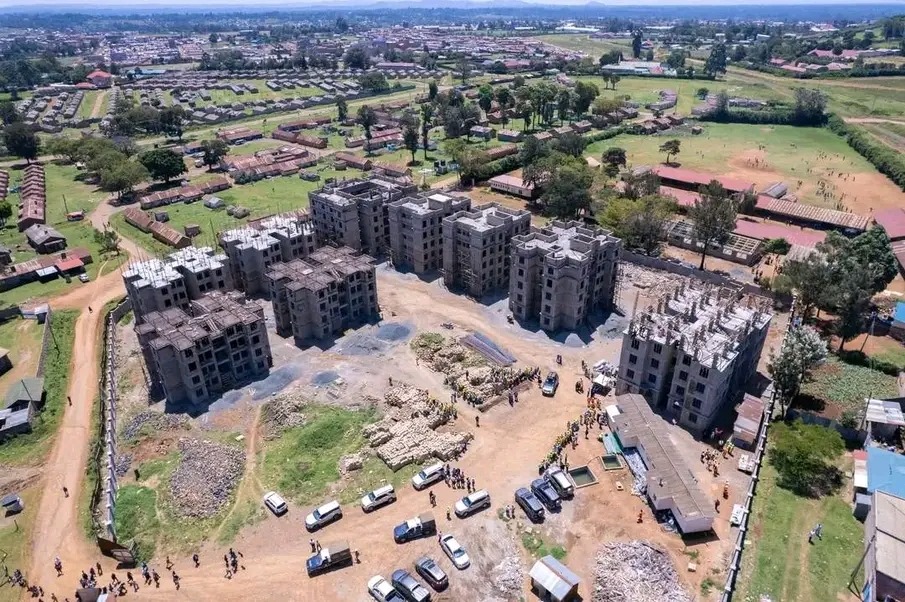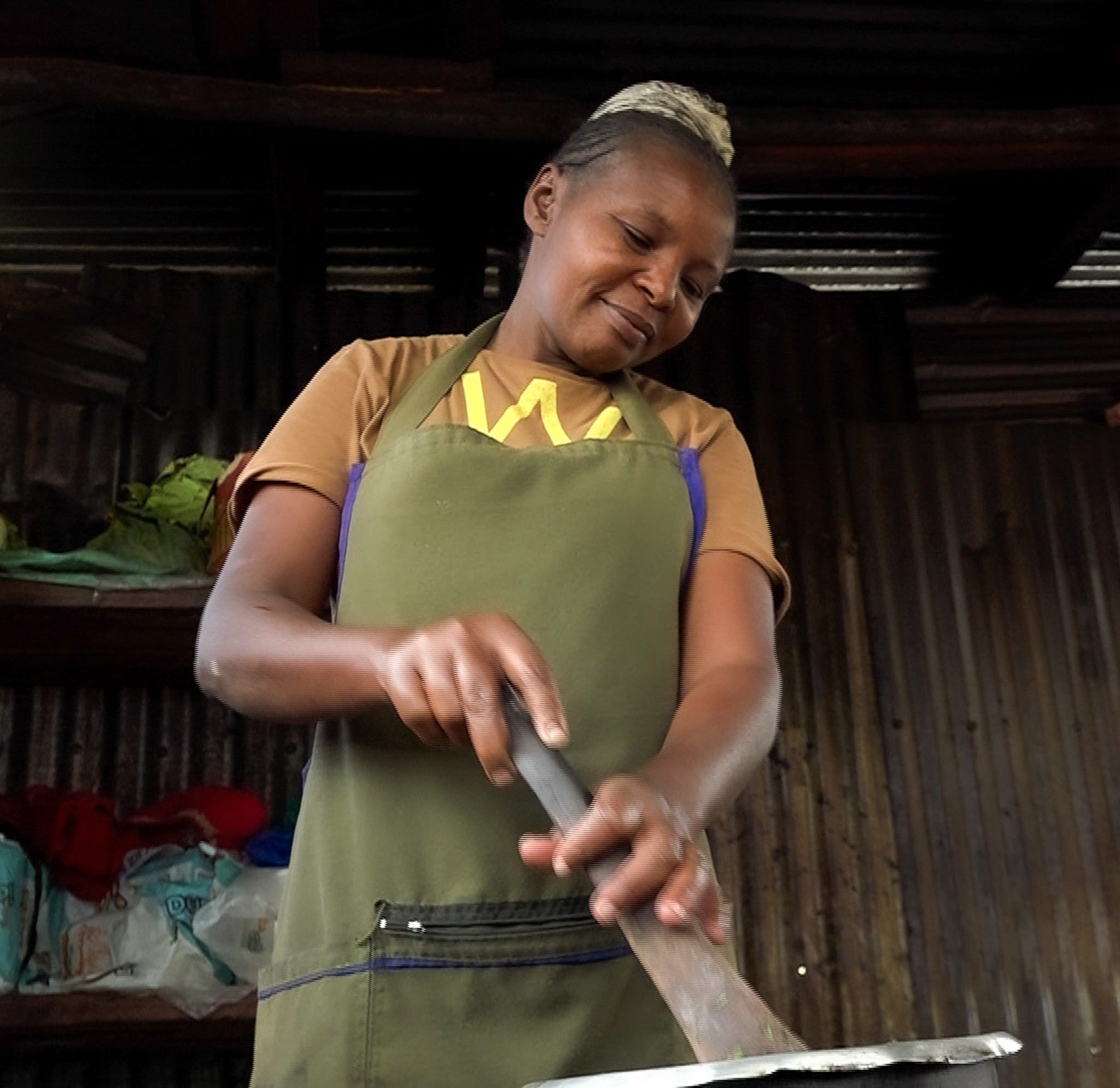

On March 19, 2024, President William Ruto enacted The Affordable Housing Act, establishing a framework for the collection of the housing levy and implementation of the affordable housing programme (AHP).
During the signing ceremony, Ruto said implementation of the affordable housing programme would transform the lives of Kenyans at the bottom of the pyramid by creating jobs, providing decent housing and reducing agricultural land fragmentation.
The ceremony, held at State House, Nairobi was attended by various leaders including members of the Cabinet, Members of Parliament and workers from the construction and manufacturing sector.
Barely a year after the enactment of the Affordable Housing Act, the impact is already being seen across related sectors, including once dormant towns now turning into investment centres, as the construction continues.
One such town is Bomet, where for many years business and growth have been slow due to the low economic activities and purchasing power.
According to John Kipkorir, a 39-year-old welder in Bomet town, he used to make about three windows a day at his Juakali workshop in Chepalungu.
Kipkorir said he served a small segment of the market and there were times he could go for months without any orders.
He attributed his lack of market to the low demand from the town and village dwellers in Bomet, as well as the town's limited growth.
This, he said, is currently not the case since the start of the AHP by the government.
Kipkorir was one of many individuals whose fortunes have changed as his business suddenly sprung up as a result of the housing programme.
“This programme has really improved my business. I am now busy and my small workshop has been turned into a factory that produces more than I could have imagined.
“I hope this programme continues so that more people can benefit from it,” he said.
The Chepalungu project has 220 units, comprising 60 studios, 20 one-bedroom apartments, 120 two-bedroom apartments, and 20 three-bedroom apartments, all ready for allocation.
Under the directive of President William Ruto, all of the materials used for the construction of affordable houses must be sourced locally or made by local artisans.
Youths hired to work on the housing projects must come from the host communities as well.
Kenya faces a housing deficit of 2 million units, with demand increasing by 200,000 units every year.
Through the Bottom-Up Economic Transformation Agenda (BETA), the government plans to construct at least 250,000 homes annually through the AHP to bridge the housing gap, while at the same time stimulating the economy by promoting enterprise development in critical sectors like cement production, steel manufacturing, timber, and other construction materials.

Chepkirui Joan, a mother of two, from Emgwen in Nandi County said the Emgwen Affordable Housing project opened up an opportunity for her to economically empower herself.
She said after the program started; she opted to sell food to the workers at the project so they wouldn’t have to go far to look for lunch.
Through this, she is now able to take care of her children and take care of all her needs.
“I never imagined that I would become self-reliant after the death of my husband. I thought it was the end of my life. When this program came to this town, I saw an opportunity to make mandazi, chapati, Githeri and other foods for the youth and other people working on the construction site,” Chepkirui said.
Joyce Waceke, a civil engineering graduate, expressed her joy at being employed in the Kidiwo Affordable Housing project in Eldoret, Uasin Gishu.
According to Joyce, she started as a casual laborer but was later promoted to supervisor.
She now earns her own income and is able to sustain herself in Eldoret town.
“I am grateful to my head supervisor for recognizing my skills and ability to turn things around. This programme has enabled me to pay my rent, and I no longer rely on my parents for upkeep."
Last year, Lands and Housing Cabinet Secretary Alice Wahome noted that the housing programmes are designed to increase economic activity in localities.
She said this is part of the broader aim of the program to empower young people and communities.
“There will be hundreds of tenants moving in, increasing business opportunities as they will need vegetables, milk, and other services from the community,” Wahome said.
In Murang’a, Michael Mwololo, a site agent at the Makenji project said the programme engages between 120 and 150 youth daily, which has brought an end to criminal activities.
He noted that the project has been a lifeline for many families, as it has kept the youth from joining criminal gangs or indulging in alcoholism.
“The area has been turned into an economic hub after decades of dormancy. Once the project is completed, the area will transform, and locals will supply tenants with food, milk, and other goods,” said Mwololo.
The construction projects are expected to improve the demand for skilled labor in the region, leading to increased enrollment in TVET courses, which are now in high demand.
Data from the State Department for Housing and Urban Development says that between 120 and 250 youths with skills work daily on these projects.
Some of these youths have been able to establish their own businesses, becoming self-reliant and independent, instead of relying on activities like gambling and engaging in crime and other vices.
Kericho County Commissioner Gilbert Kitiyo, in a recent address to the media, emphasised the need for youth to participate in the housing programme and become champions for it.
He noted that there has been a reduction in crime rates, gambling, and alcoholism in the county due to the youth involvement in the affordable housing programme.
“The youth must take part in this project. So far, in Kericho, there has been a reduction in crime rates, betting, alcoholism, and domestic violence caused by lack of food and other poverty-related issues,” Kitiyo said.









![[PHOTOS] Gachagua warm reception in Nyandarua](/_next/image?url=https%3A%2F%2Fcdn.radioafrica.digital%2Fimage%2F2025%2F04%2Fc2a8c64d-5577-4768-a0ac-513c8876c288.jpeg&w=3840&q=100)


